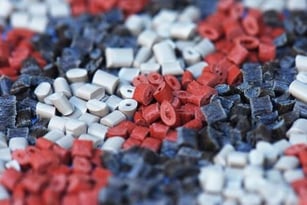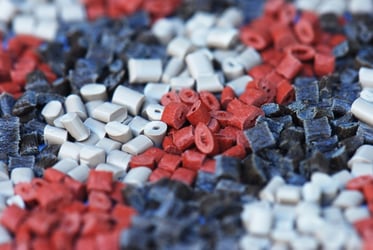 Many thermoplastics processors find that using purging compounds reduces machine downtime and lowers scrap rates. In an increasingly competitive global market, this helps processors increase profitability.
Many thermoplastics processors find that using purging compounds reduces machine downtime and lowers scrap rates. In an increasingly competitive global market, this helps processors increase profitability.
Using purging compounds in a proactive manner goes a long way in keeping machines running efficiently and lowering defect rates. However, it’s not enough to simply purchase purging compounds – these products need to be used properly.
For this reason, thermoplastics processors should work with a purging compound supplier that offers comprehensive training to ensure that processors obtain the most value from their use of the purging compounds.
Discover why purge training is critical to thermoplastics processing success.
Purge Training Lowers The Risk Of Costly Mistakes
Are your operators using the “auto-purge” functionality on your extruder and injection molding machines? If so, you may end up using more purging compound over time, because machine “auto-purge” settings are typically not in line with what purging compound suppliers recommend.
In most cases, purging with a mechanical grade should be performed at the highest pressures and speeds that can be safely run. When these settings are not maximized, purging is less effective and is needed more frequently.
When operators are trained in proper purging procedures for injection molding machines and extruders, they’re less likely to use “auto-purge” settings. By using a more efficient manual setting recommended by a purging compound supplier , you’ll reduce total purging costs.
Additionally, without proper training, operators may use the same amount of purging compound for every purge, which could result in improperly purged machines, a higher scrap rate, higher materials costs and inefficient production.
With purge training, operators know that different conditions (such as the length of time since the last screw pull and full cleaning) and materials call for different amounts of purging compound.
Finally, without proper training, operators may succumb to the notion that using purging compounds completely eliminates the need to manually clean screws. While purging compounds make machine cleaning more effective, operators still need to clean screws periodically. Not doing so could lead to significant machine downtime.
Supplier-Provided Instructions And Training Lead To Better Results
Each purging compound application is different. Different types of purging compounds call for different procedures and amounts of material required.
To help avoid errors and obtain the most value from your purging compound, your supplier should provide detailed, thorough instructions for each application, as well as the right machine settings for different scenarios. Your supplier should also offer your operators comprehensive, hands-on training for using the purging compounds on your actual machines when required.
In addition to this first hand training, your supplier must provide clear documentation that helps train new employees, and offer additional ongoing training that helps your operators account for different variables in each purging situation. Consider integrating the purging instructions documents your supplier provides you into your general extrusion and injection molding training.
With this supplier-provided training and support, you derive more value from the use of the purging compound.
Purging Compound Use And Training Help Achieve Measurable Cost Savings
With proper usage of your purging compounds, you should experience reduced scrap rates, increased machine uptime and lowered costs. Some suppliers will even supply you with a cost-savings-analysis (CSA) tool that helps you track your savings and progress.
The increased efficiency you achieve with purging compounds helps support profitability and puts you in a better position to compete in the global thermoplastics processing market.
Learn more about reducing downtime with proper purge training.






Comments